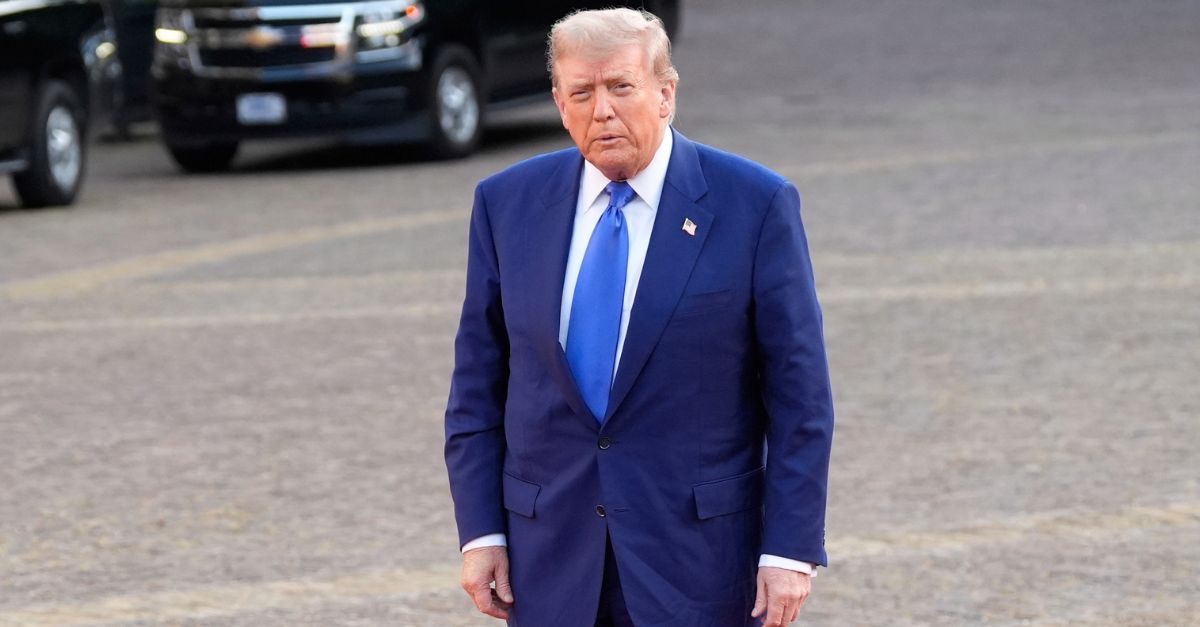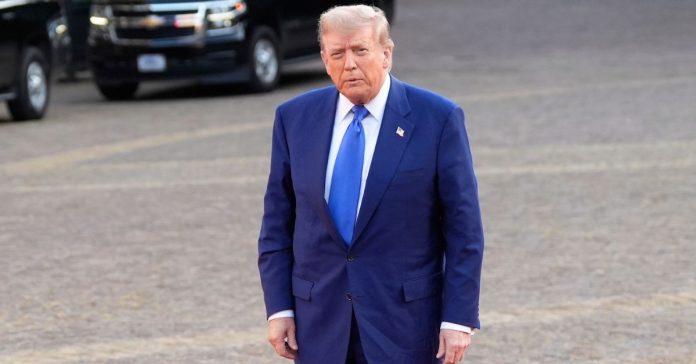
President Donald Trump poses for photographers as he arrives for a formal dinner at the Paleis Huis ten Bosch ahead of the NATO summit in The Hague, Netherlands, Tuesday, June 24, 2025 (AP Photo/Alex Brandon).
A labor union representing NASA workers filed a lawsuit against President Donald Trump and Acting NASA Administrator Sean Duffy this week in a Washington, D.C., federal court over an executive order stripping collective bargaining rights from federal employees.
On Aug. 28, the 45th and 47th president issued Executive Order 14343, entitled: “Further Exclusions from Federal Labor-Management Programs.” The order, under the auspices of “national security,” purports to remove six agencies from the Federal Service Labor-Management Relations Statute, a federal law that has provided collective bargaining rights for most federal employees since 1978.
In a 26-page complaint, the International Federation of Professional and Technical Engineers, representing some 6,000 NASA workers, claims the executive order — and attempts to implement it — are “ultra vires and unconstitutional under the First and Fifth Amendments.”
The IFPTE says the latest executive order is a prohibited attempt evidencing a “bare . . . desire to harm a politically unpopular group” in line with other documented “efforts to dismantle federal unions—specifically those that speak out against the Administration.”
Love true crime? Sign up for our newsletter, The Law&Crime Docket, to get the latest real-life crime stories delivered right to your inbox.
The lawsuit notes that the August executive order is a cumulative effort by the Trump administration to dismantle collective bargaining rights for federal employees — following an earlier, similarly worded, order attempting to do the same to 16 other agencies issued in March.
In sum, the government claims, the combined 22 agencies have national security “as their primary function,” the lawsuit notes.
“NASA does not have national security as its primary function,” the lawsuit categorically bristles. “NASA has been collectively bargaining with federal employee unions for decades.”
The filing also acknowledges it is the latest among a widespread labor union effort to push back against the Trump administration”s attacks on collective bargaining rights, becoming the fourth such lawsuit in the D.C. Circuit alone to challenge the August executive order.
“Similarly to these other labor organizations challenging Defendants’ unlawful actions, IFPTE challenges defendants and the EO, which exists solely to strip federal employees and their representatives of long-held statutory rights in retaliation for protected First Amendment activity and because they belong to a group disfavored by the Trump Administration,” the filing reads.
Neither Trump nor Duffy has the power to attack labor unions in the ways they are attempting to do so, the plaintiffs claim.
The plaintiffs make numerous references to the originating statute which says “labor organizations and collective bargaining in the civil service are in the public interest” and gives workers the right to “form, join, or assist any labor organization, or to refrain from such activity” and “to engage in collective bargaining with respect to conditions of employment through representatives chosen by employees.”
The lawsuit also refers to what the plaintiffs hope will be a relevant portion of the congressional record which describes the statute as an effort by Congress to create a “Federal labor-management program which cannot be universally altered by any President.”
“The President’s attempts to unilaterally exclude the majority of the federal workforce from collective bargaining conflict with the statute,” the lawsuit argues.
On Sept. 11, Duffy moved to implement the executive order by announcing the IFPTE no longer served as the “exclusive representatives for any group of NASA employees,” the “termination, abrogation, or repudiation of collective bargaining agreements (CBAs) with labor unions,” that NASA would stop “collection of union dues on behalf of labor unions,” and various other anti-union actions, including government withdrawal from collaborative process like negotiations, grievance processing and previously-scheduled arbitrations.
“Similarly, the actions of Defendant Duffy in terminating collective bargaining agreements between Plaintiff’s local affiliate unions and NASA and refusing to participate in the collective bargaining process are also ultra vires, as they rely on and enforce an illegally issued and invalid executive order,” the lawsuit goes on.
To hear the plaintiffs tell it, the latest executive order “was issued in retaliation for IFPTE’s protected speech and petitioning activities, including among other things, participating in a lawsuit to challenge” the earlier anti-union executive order and for “making public statements strongly condemning the President’s actions.”
This alleged campaign of retribution is a clear violation of the First Amendment, according to the lawsuit.
“[The August executive order] aims to chill such protected speech and petitioning activity not just by Plaintiff, but by all federal unions,” the lawsuit goes on. “Indeed, as the [Office of Personnel Management] guidance makes clear, [the August executive order] is intended as a supplement to [the March executive order], which was patently issued for the purpose of targeting labor organizations that stand up to President Trump.”
The filing goes on like this, at length:
Plaintiff IFPTE and its affiliated local unions have exercised their First Amendment rights to criticize the actions of the Trump Administration and to petition the government by filing lawsuits to challenge these policies. Such First Amendment activity is a core part of our democratic system, memorialized in this Country’s founding documents.
By issuing EO 14343 in retaliation for IFPTE’s protected activity and for the purposes of chilling the rights of labor organizations more broadly, President Trump has violated the First Amendment. Defendant Duffy and NASA’s implementation of EO 14343 share in the unlawful executive order’s retaliatory purpose and effects, so such actions also violate the First Amendment.
And, in what may become a flash point of motions practice and litigation, the union claims the negation of contracts amounts to unconstitutional takings under the Fifth Amendment.
The plaintiffs are asking the court to enjoin the Trump administration “from implementing or otherwise giving effect” to the August order as well as declaratory relief and attorneys fees.

